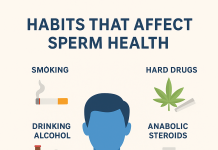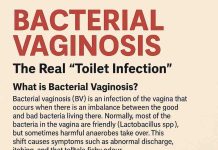Teething in babies is an important period that every parent looks forward to experiencing. However, seeing those tiny little milk teeth can be equally as exciting and uncomfortable for both the parents and the baby.
What is Teething?
In babies, teething is a normal developmental process that occurs when the tooth begins to break through the gum. The teeth begin to form while a baby is yet in the womb with the tooth buds already developing in the gums. A child’s milk teeth will usually begin to appear between the first six to nine months of age, it could also be earlier or later than this; it is in fact possible for a child to already have one or two teeth at birth. Teething is usually accompanied by restlessness and an increased need to chew on something in babies.
How do you know a baby is teething?
The symptoms exhibited in teething are not the same for all babies. Some babies experience very mild symptoms that can last for few days while some can experience more painful symptoms that can last for a longer period of time.
Some of the symptoms that should be expected when a baby is teething include fussiness, dribbling more than usual, chewing on fingers or fists continuously, swollen and tender gums, increased drooling, rubbing the ear on the side in which the tooth is growing, restlessness etc.
Debunking myths surrounding teething
Almost every parent is familiar with a myriad of sicknesses such as diarrhea, cough, cold, fever and rashes that are believed to be associated with teething. It might be shocking to realize that this is not true! Teething does not cause diarrhea or fever in babies. Teething should also not predispose your child to sicknesses or make them cry excessively.
This is important to note because some parents deprive their children of the necessary medical attention and care that they require because they believe it is only a symptom of teething. Recently, on Twitter, we discussed how lack of immediate medical attention when a child has fever can cause seizures. A child can also suffer from worsening of infections and dehydration from diarrhea if left unattended to just because they are believed to be experience teething.
What really causes these illnesses?
The major reason why most children suffer from diarrhea, cough, cold and other infections during this period is because of the reduction of the antibodies they had received from their mothers at birth. This reduction and final loss of antibodies usually occur within the 6th month of age, and this coincides with the teething period for most children. These symptoms should be considered independent of teething and given immediate medical attention.
Another reason why children experience infections and diarrhea during the teething period is because of their increased tendency to put their fingers (usually unclean) in the mouth due to the discomfort they are feeling. Some parents also put their fingers (could be unclean too) in their children’s mouth to help massage their gums. These increased introduction of germs into the body could result in illnesses in the child.
How to provide adequate care for your child in this period
Massage/ gently rub the gums with clean fingers
Ensure to properly wash your fingers and gently rub them over the gum from which the child’s tooth is growing. A cool, wet and most importantly, clean piece of clothing can also be used to massage the area surrounding the gums.
Provide something to chew on
As mentioned above, one of the symptoms of teething is an increased urge to chew on something in the baby. Many parents fall into the temptation of giving their babies sweets and biscuits during these periods for them to have something to chew on, this is highly discouraged as the sugar contained in these are detrimental to the child’s teeth. Instead, little pieces of fruits and vegetables should be offered to the child to chew on.
Use pain medications if prescribed
If your pediatrician or general health care practitioner encourages it, give acetaminophen to help ease the pain the child might be experiencing. Diclofenac is highly discouraged, and Ibuprofen should not be given unless the child is at least 6 months old.
Be Hygienic
Babies will always try to put anything they can see around them in their mouths, including toys, clothes etc. High priority should be given to ensuring that items around the baby are properly cleaned. Also, as already discussed, fingers employed in massaging a baby’s gum should be thoroughly cleaned.
A word from Healthfacts
Teething is a natural process in babies and usually, there is no need to panic. Any sickness observed that goes beyond the expected symptoms of teething as mentioned above should not be dismissed but given immediate medical attention. There is no need to use medications for your baby when they are teething if you are not advised to do so by your physician. Do not fall victim of charlatans that peddle teething mixtures of which you are not sure of the content. Your baby might be restless while teething, but you can be rest assured, they will do just fine.









